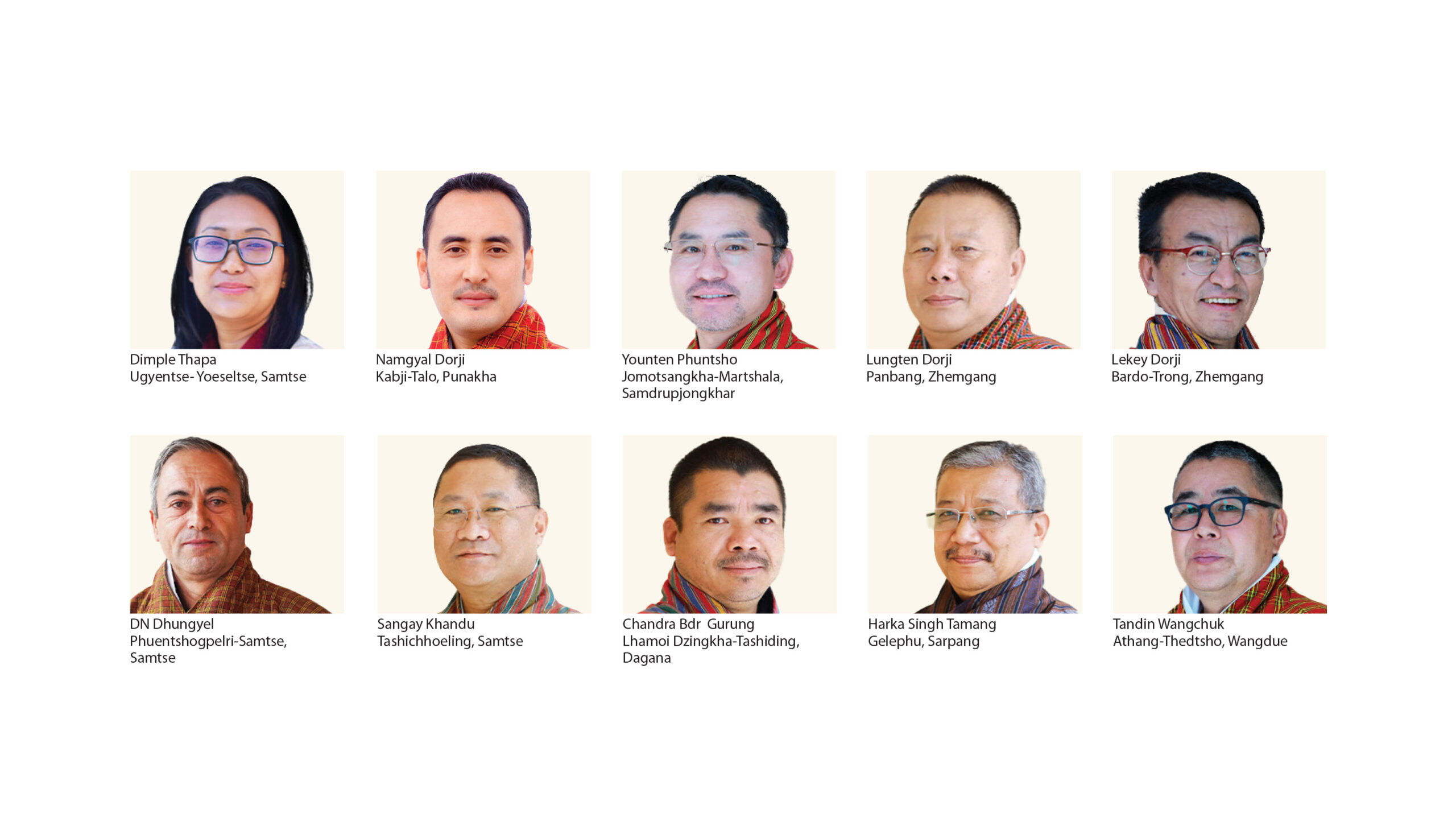Chencho Dema
Punakha —The eagerly anticipated outcome of the fourth National Assembly elections, which concluded on January 9, revolves around the appointment of ministers from among the 29 candidates of the People’s Democratic Party.
Speculation has arisen on social media, suggesting that the only female candidate of the winning party, Dimple Thapa, should be given a Cabinet portfolio.
At this stage, Namgyal Dorji from Kabji-Talo is considered one of the ministerial candidates, most likely the Ministry of Foreign Affairs and External Trade.
Concerning the composition of the current Cabinet, most civil servants and political analysts surmise that ten individuals stand out as the right candidates for ministerial posts, considering their regional representation, qualifications, experience, and leadership credibility.
With only one MP in the winning party from the east, there is a high probability that at least one ministerial post will be allocated to the eastern region.
Younten Phuntsho, who won the Jomotsangkha-Martshala seat in Samdrupjongkhar, will likely be given the Ministry of Agriculture and Livestock. Lungten Dorji from Panbang is expected to be assigned to the Home Ministry.
Lekey Dorji from Zhemgang’s Bardo-Trong constituency is also seen as a potential ministerial candidate.
Given the southern region’s shift in support towards PDP candidates, it is projected that the south will have more ministers this time.
DN Dhungyel from Phuentshogpelri-Samtse constituency seen as a potential ministerial candidate. Sangay Khandu from Tashichhoeling constituency, who could be named the Speaker.
Chandra Bdr. Gurung from the Lhamoi Dzingkha-Tashiding constituency, is regarded as a seasoned politician who could lead the Finance Ministry.
Another competent candidate for the ministerial portfolio from the south is Harka Singh Tamang from Gelephu constituency.
Tandin Wangchuk of Athang-Toedtsho is potential candidate from the West.
Political analysts emphasize the need for a good mix of old, experienced ministers and a new batch of fresh ministers to ensure effective governance and political sustainability.
Civil servants and former politicians stress the importance of gender representation and proper succession planning, suggesting that old ministers should give way to new ones for continuity and future elections.


